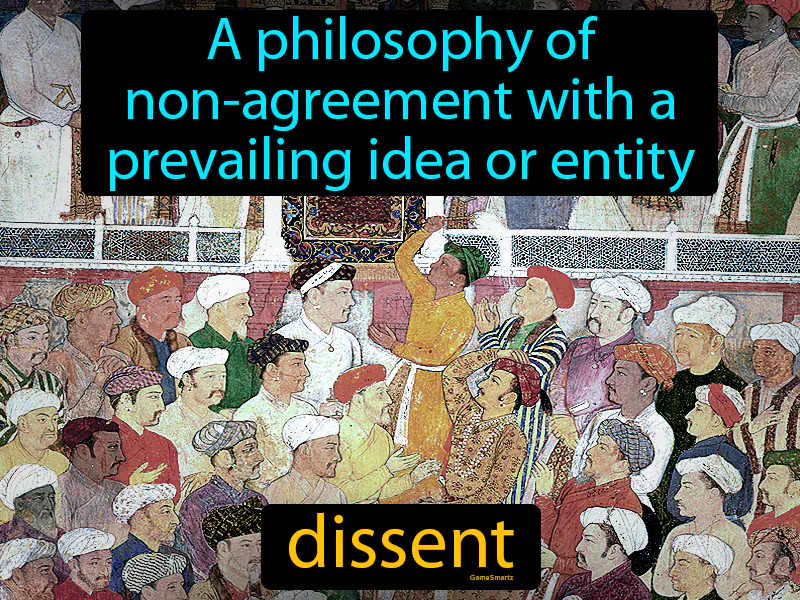Dissent
Dissent:
In Ancient India, dissent was significant during the rise of Buddhism and Jainism, which opposed the traditional Vedic rituals and caste system, advocating for equality and non-violence. In China, dissent can be seen in Confucianism's challenge to the ruling philosophies by promoting social harmony and ethical governance. These ideas responded to societal inequalities and rigid structures, encouraging people to question and think critically about existing norms. Today, dissent remains important as it allows individuals to voice differing opinions and advocate for change, such as when students protest for climate action, pushing governments to adopt sustainable policies. This concept matters because it empowers people to challenge injustices, leading to societal improvements and protecting freedoms.

Practice Version

Dissent: A philosophy of non-agreement with a prevailing idea or entity. Dissent. In history, dissent is when individuals or groups challenge or oppose established norms or authorities.
